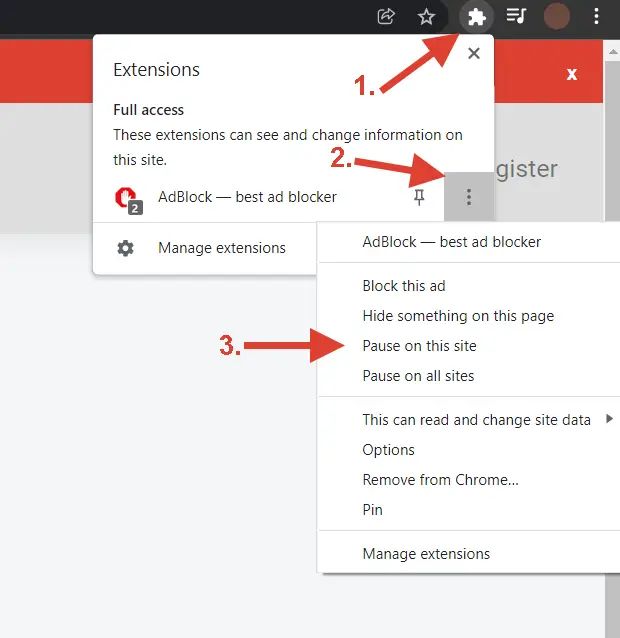In today’s digital-first world, businesses need personalized, efficient, and scalable communication tools to build stronger relationships with their customers. WhatsApp, one of the most widely used messaging platforms globally, offers a solution that goes beyond casual chatting—the WhatsApp Business API. This tool empowers businesses to automate, enhance, and scale their customer interactions, taking engagement to the next level.
In this guide, we’ll cover everything you need to know about the WhatsApp Business API, including what it is, its benefits, how to get started, pricing details, and practical use cases. Whether you’re searching for “what is WhatsApp API,” “WhatsApp API pricing,” or “how to use WhatsApp Business API,” this post has all the answers.
Table of Contents
- What is the WhatsApp Business API?
- Key Benefits of Using the WhatsApp Business API for Businesses
- How to Get Started with the WhatsApp Business API
- Practical Uses of the WhatsApp Business API
- Exploring Pricing and Costs of the WhatsApp Business API
- Choosing the Right WhatsApp Business API Provider
- Tips for Effective WhatsApp Business API Usage
- The Future of WhatsApp Business API
- FAQ (Frequently Asked Questions)
What is the WhatsApp Business API?
The WhatsApp Business API is a scalable solution designed for businesses to integrate WhatsApp’s messaging capabilities into their existing platforms, such as CRMs, customer support software, and marketing tools. Unlike the standard WhatsApp Business app, which caters to small businesses, the API is tailored for companies managing high volumes of messages or requiring advanced automation.
Businesses often ask, “What is the WhatsApp API?” or “What is WhatsApp for Business API?” The API enables automation, bulk messaging, chatbot integration, and real-time customer engagement. Through WhatsApp API links, businesses can create direct chat links for customers to contact them instantly—these links are pivotal for driving conversations from websites, emails, or social media ads.
Key Benefits of Using the WhatsApp Business API for Businesses
Why should businesses invest in the WhatsApp Business API? Here are its core advantages:
- Scalability: Handle thousands of messages simultaneously without compromising quality.
- Personalization: Tailor messages to customer preferences using data-driven insights from your WhatsApp API CRM integration.
- Automation: Set up automated workflows like appointment reminders, order confirmations, and FAQ responses via a WhatsApp API chatbot.
- Rich Messaging Features: Enhance engagement with multimedia messages, including videos, images, and documents.
- Data Security: Benefit from WhatsApp’s end-to-end encryption to ensure customer data remains private.
If you’ve ever wondered, “What is the use of WhatsApp Business API?”—it’s all about delivering seamless, efficient, and secure communication that drives customer satisfaction and loyalty.
How to Get Started with the WhatsApp Business API
Accessing the WhatsApp Business API isn’t as simple as downloading an app. Instead, it requires partnering with an authorized WhatsApp Business Solution Provider (BSP).
Here’s a step-by-step guide:
- Choose a BSP: Compare providers based on WhatsApp API pricing, features, and customer support. Popular BSPs include Twilio (Twilio WhatsApp API pricing), Kaleyra, and Wati.
- Verify Your Business: Submit documentation to verify your business identity, including a Facebook Business Manager account.
- Set Up Your API: Your BSP will help configure the API, link it to a dedicated phone number, and integrate it with your existing systems.
- Create Message Templates: Prepare pre-approved templates for customer interactions, such as order updates or welcome messages.
For businesses searching for “how to get WhatsApp Business API” or “how to apply for WhatsApp Business API,” following this process with a trusted BSP ensures compliance and smooth setup.
Practical Uses of the WhatsApp Business API
The WhatsApp Business API offers a range of applications to enhance business operations:
- Customer Support: Use automated chatbots for 24/7 support, resolving FAQs, and escalating complex issues to human agents.
- Marketing Campaigns: Launch personalized promotional messages via a WhatsApp marketing API, targeting specific customer segments.
- Transactional Updates: Send order confirmations, delivery updates, and payment receipts.
- Feedback Collection: Gather reviews and insights through interactive surveys.
Whether you’re a small business or a larger enterprise, the API’s versatility—from sending bulk messages to streamlining operations—makes it an indispensable tool.
Exploring Pricing and Costs of the WhatsApp Business API
Pricing for the WhatsApp Business API varies based on the provider, geography, and usage:
- Per-Conversation Model: Charges depend on the type (user-initiated vs. business-initiated) and location of the conversation.
- Regional Differences: For instance, WhatsApp Business API pricing in India is often competitive compared to global rates.
- Provider Fees: BSPs like Twilio, Kaleyra, and Wati have different pricing structures, so compare costs carefully.
While businesses may search for “WhatsApp Business API free”, note that there’s no free version. However, the ROI from improved customer engagement often outweighs the costs.
Choosing the Right WhatsApp Business API Provider
When searching for the best WhatsApp API provider, consider the following factors:
- Features: Look for advanced options like chatbot integration, CRM compatibility, and analytics.
- Pricing: Balance cost-effectiveness with features—don’t just opt for the cheapest WhatsApp API.
- Support: Evaluate the quality of customer support, especially during the setup phase.
- Trial Options: Many providers offer demos or free trials, which can help you make an informed decision.
Stick to authorized providers to ensure you’re using the official WhatsApp API safely and effectively.
Tips for Effective WhatsApp Business API Usage
To maximize your investment in the WhatsApp Business API:
- Personalize Interactions: Address customers by name and tailor messages to their preferences.
- Follow Best Practices: Use approved templates and avoid spamming customers.
- Ensure Data Transparency: Be upfront about how customer data is used and stored.
- Monitor Performance: Continuously refine your strategy based on metrics like response times and customer satisfaction.
The Future of WhatsApp Business API
As WhatsApp continues to innovate, the API is set to become even more powerful:
- AI Integration: Smarter chatbots will enable more complex interactions.
- Data Analytics: Predictive tools will enhance customer engagement strategies.
- Broader Adoption: Expect more small businesses to leverage WhatsApp API for small business growth.
FAQ (Frequently Asked Questions)
What exactly is the difference between the regular WhatsApp Business app and the WhatsApp Business API?
The app is for small businesses with limited messaging needs, while the API is for scaling communication through automation and integration.
Do I need to be a large enterprise to use the WhatsApp Business API?
No. Businesses of all sizes can benefit from the API.
Is there a completely free official version of the WhatsApp Business API?
No, access is only available through authorized BSPs who charge for their services.
What is a WhatsApp API link, and how does it relate to the API itself?
A WhatsApp API link lets customers initiate chats with businesses directly but is not the API itself.
How do I ensure compliance with WhatsApp policies?
Work with an authorized BSP and avoid sending unsolicited messages.
Can I integrate the WhatsApp Business API with my CRM?
Yes, integration improves personalization and centralized data management.
What does “per-conversation” pricing mean?
Charges apply based on 24-hour conversation windows, influenced by initiation type and location.


